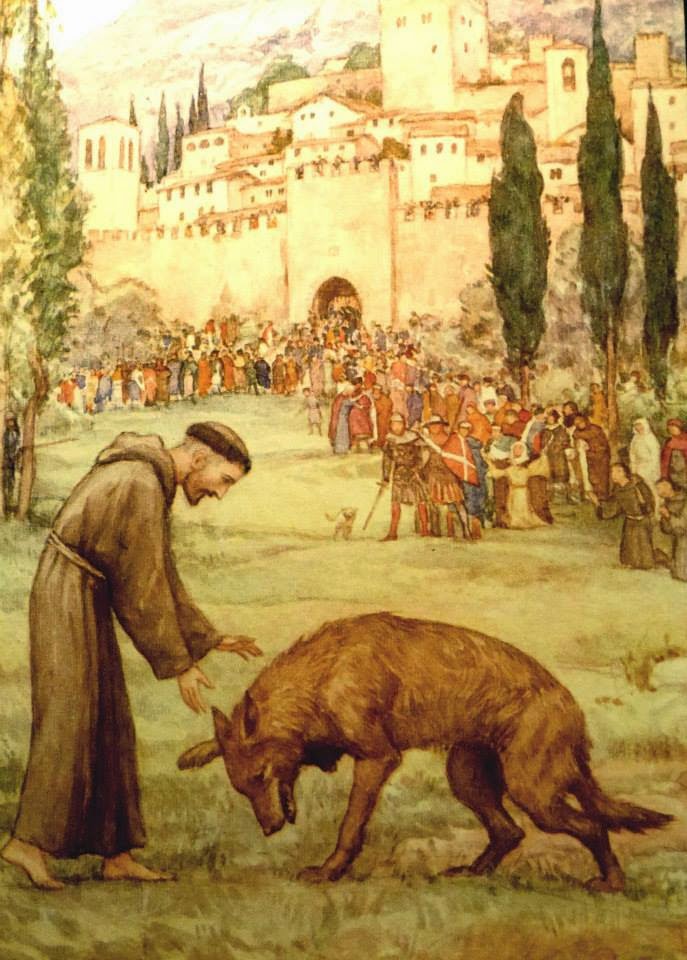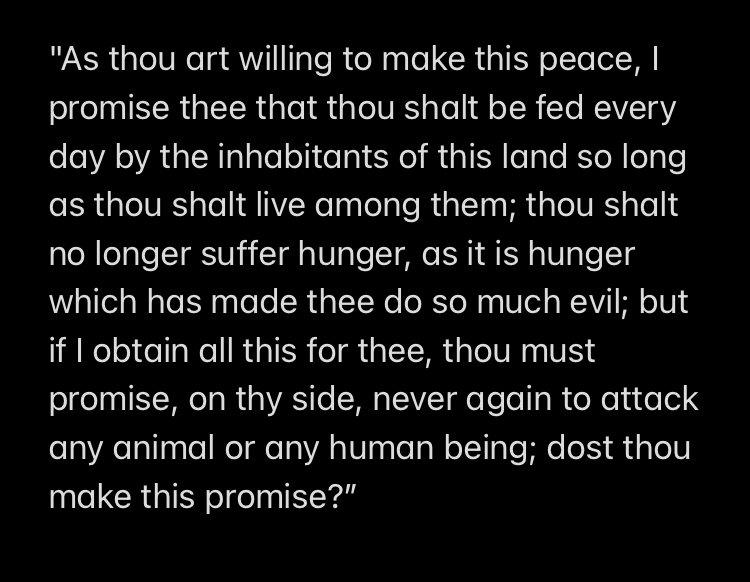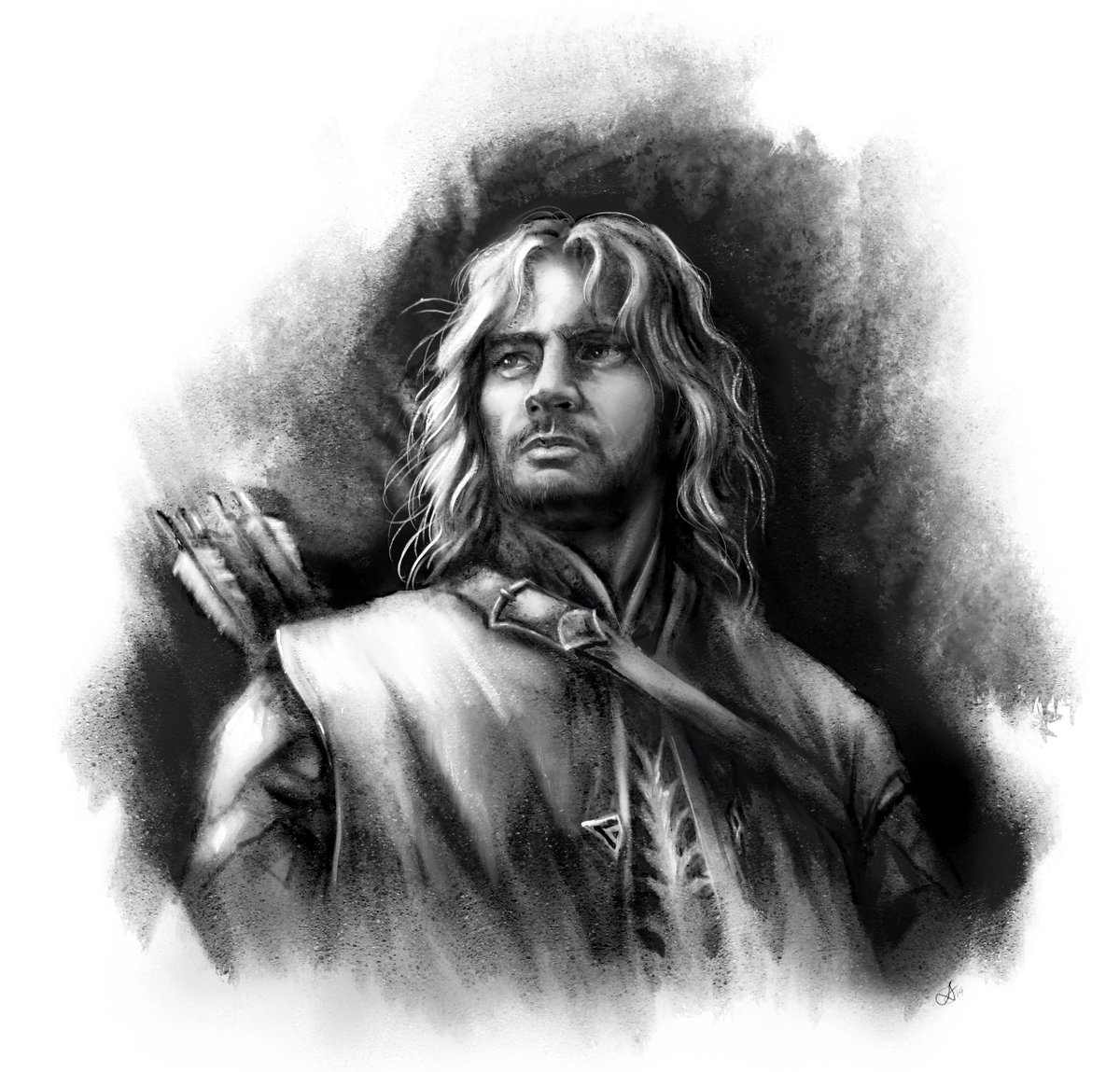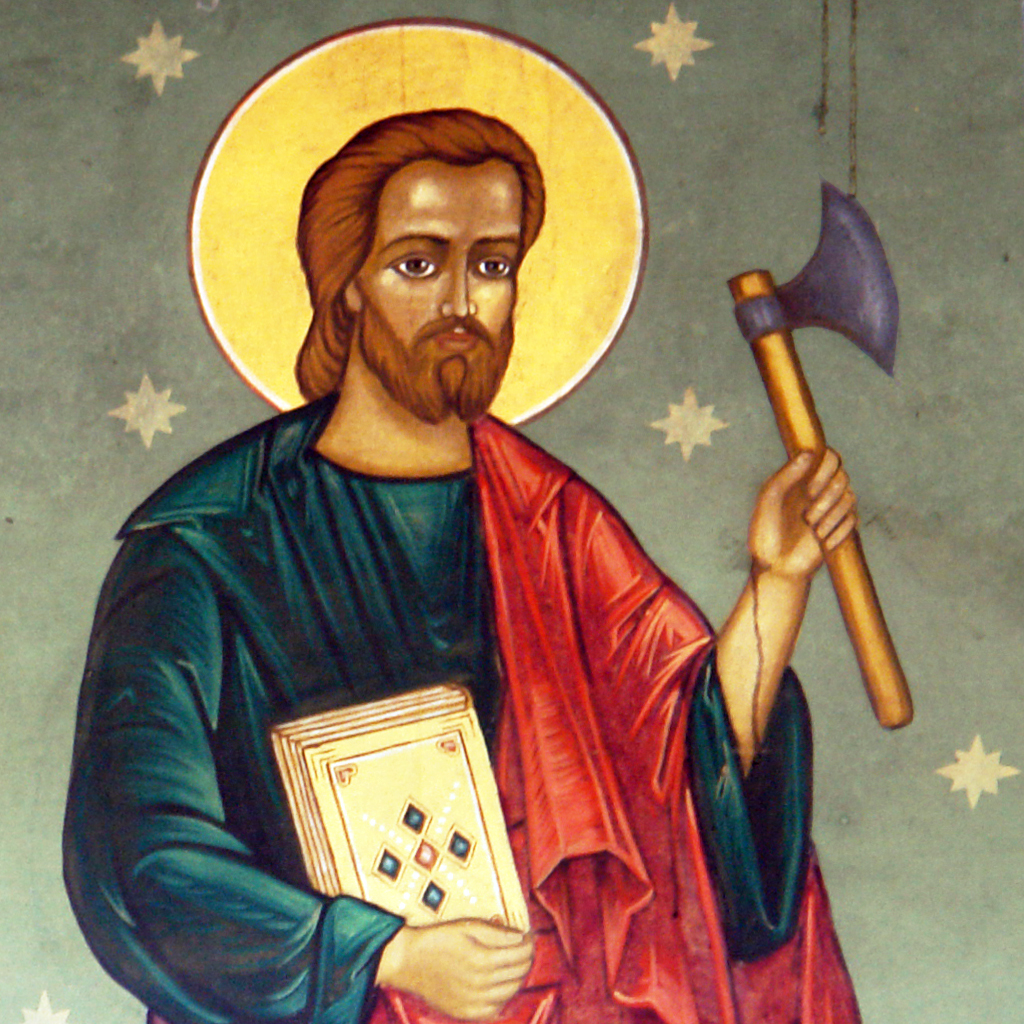
In the early 13th century, the Italian town of Gubbio was terrorized by a wolf. Not only had it killed livestock, but it started devouring humans as well! Anybody who went out beyond the city walls alone was not likely to make it back alive.
St. Francis felt much pity for the townspeople, and he was known to have a special connection to animals, so he decided to go find the wolf. Against the advice of nearly everyone, Francis made the sign of the cross and went forth from the city. 
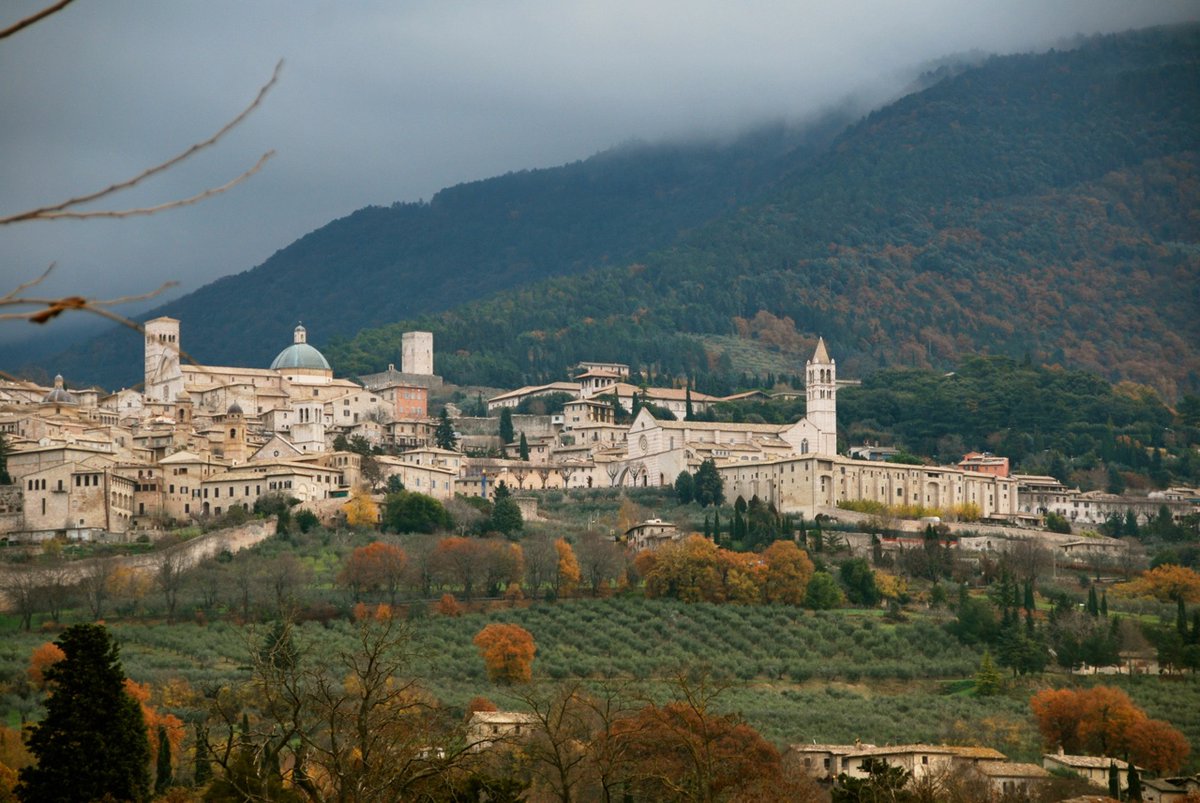
When Francis came upon him, the wolf flashed his teeth and charged at Francis, who again made the sign of the cross and called out to the wolf:
"Come hither, brother wolf; I command thee, in the name of Christ, neither to harm me nor anybody else.”
"Come hither, brother wolf; I command thee, in the name of Christ, neither to harm me nor anybody else.”
Brother Ugolino reports: “Marvellous to tell, no sooner had St Francis made the sign of the cross, than the terrible wolf, closing his jaws, stopped running, and coming up to St Francis, lay down at his feet as meekly as a lamb.”
Francis expressed his concerns: "Brother wolf, thou hast done much evil in this land, destroying and killing the creatures of God without his permission; yea, not animals only hast thou destroyed, but thou hast even dared to devour men, made after the image of God." 

As Francis spoke, the wolf nodded his head in consent, and when Francis asked ”Brother wolf, wilt thou pledge thy faith that I may trust to this thy promise?” the wolf placed his paw in Francis’ extended hand and they shook on it! 

Having reached the agreement, Francis asked Brother Wolf to join him as he announced the agreement to the townspeople, and Brother Wolf “walked by his side as meekly as a lamb, to the great astonishment of all the people.”
Francis told the townspeople that Brother Wolf had promised to do no more harm, and he got the townspeople to commit to feeding the wolf every day.
Francis used the opportunity to deliver a sermon on fearing damnation rather than the jaws of a 120 lbs animal.
This whole story is pretty loaded with theological implications, when one thinks of it.
This whole story is pretty loaded with theological implications, when one thinks of it.
The wolf lived in the town for the next two years until he died of old age, going door to door for food. When he died, the townspeople “mourned his loss greatly.”
Francis of Assisi was a man of great holiness and a friend to all of God's creation! We should strive to be more like him.
Ora pro nobis, St. Francis--
Ora pro nobis, St. Francis--
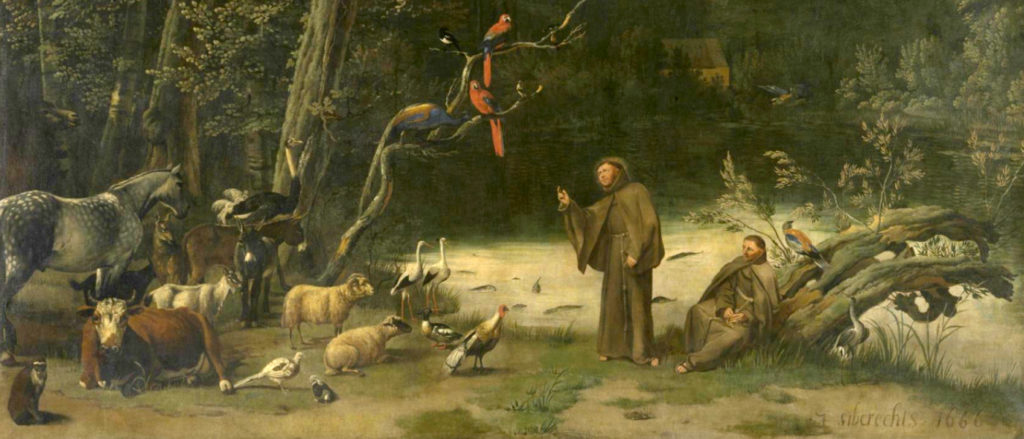
• • •
Missing some Tweet in this thread? You can try to
force a refresh

